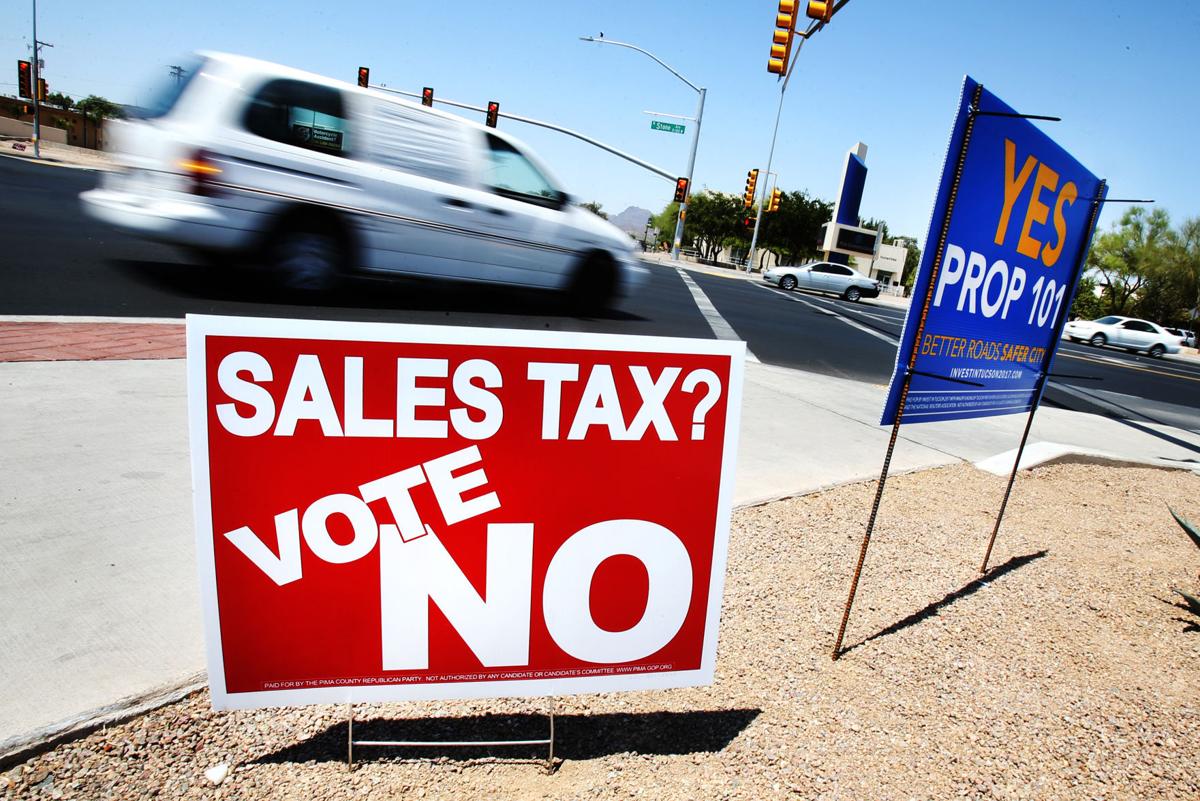David Eppihimer admits that when it comes to opposing Tucson’s proposed half-cent sales tax plan known as Proposition 101, he’s a bit late to the game.
At a gathering of the Pima County Republican Club last week, Eppihimer, the party’s county chairman, told members that the party missed the cutoff date to put arguments against the proposal into mailings sent to registered voters.
And he concedes it was too late to buy space on billboards across town calling on voters to reject the plan.
The recently elected chair isn’t giving up on the fight, however, spending most of his Friday morning driving to various radio stations to record ads that were to start airing over the weekend.
He also helped distribute 250 signs for a street-side campaign that urge passing motorists to vote against the proposed sales tax.
The proposed tax hike, in practical terms, would be impossible to avoid, Eppihimer argues.
“It is another additional tax burden for the working class in Tucson,” he says. “It is going to hurt people.”
He is quick to reject the publicly stated goals of the proposed tax: Tucson needs the estimated $250 million the new tax would generate over the next five years to fix aging roads and buy desperately needed equipment for firefighters and police officers.
“There is no reason for it,” Eppihimer says.
“We’ve looked at the budget. They refuse to spend on the core services,” he says of the Democrats who make up the City Council and Mayor Jonathan Rothschild.
“It is an abdication of their responsibilities,” Eppihimer says, noting the council has built a budget around pet projects, including giving taxpayer money to nonprofits and neighborhood associations.
Rothschild counters that Eppihimer’s criticism falls flat.
He lists the various groups that support Prop. 101, including the Tucson Metro Chamber, the Tucson Association of Realtors, Tucson Medical Center, Visit Tucson and various local businesses.
It is a trend he sees in many other cities.
“If you are going to improve our community, we are going to have invest in it,” he says.
But Republicans aren’t the only ones to oppose Prop. 101.
Brian Flagg, of the Tucson Bus Riders Union, says his group is also seeks a rejection of the sales tax increase.
“Our city is one of the poorest cities in the United States,” he said. “There is not that kind of extra money to give to cops, fire and roads.”
Instead, Flagg said the council should find a dedicated revenue source for mass transit, which he says is just as important as roads, firefighters and police.
“These sales taxes are a slap in the face to the approximately 60,000 daily users of public transit, many of whom live in poverty, who use the bus to get to work, school, the grocery store, the doctor,” he said.
Two other groups, Tucson Showing Up for Racial Justice and the Tucson chapter of LUPE (a Spanish acronym for United Struggle of Parents and Students) also have come out against Prop. 101.





